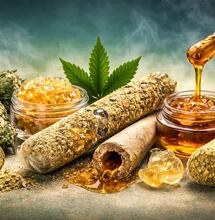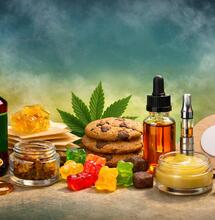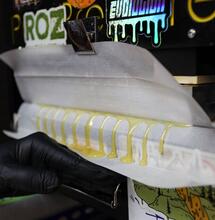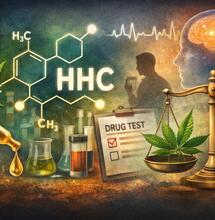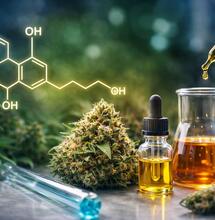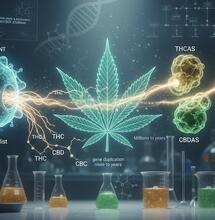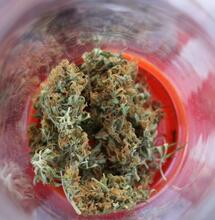Is THCA the Same as THC?
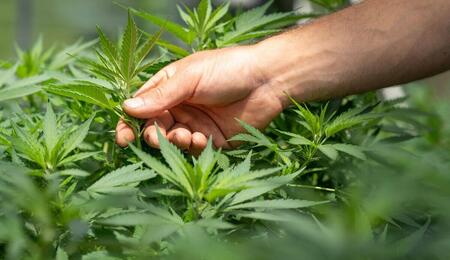
Every cannabinoid found in cannabis plants has its precursor in acidic form. For the THC, it’s THCA. As with other compounds, THCA can also be isolated and extracted. There are many products on the market, flower and other medicines, where the main extract is THCA. The big difference with THCA is that, unlike THC, it will not get you any high.
Short for Tetrahydrocannabinolic acid, THCA is a non-psychedelic agent and it stays like that when the cannabis is in its fresh and raw form. Once subjected to heat, THCA converts into THC and that’s when it delivers the known effect of high.
THCA is probably the most common non-psychoactive compound found in weed. But it’s ultimately the same thing as THC. THCA is what gives THC in the end, when you light up the joint. One of the main differences, apart from which compound gets you high and which doesn’t, is how they deliver the therapeutic effects in the body.
THCA Occurs Naturally in the Cannabis Plant
THCA is found in raw and unprocessed hemp and marijuana plants. Unlike its more famous counterpart THC, this one is not psychoactive and won’t make you feel high. To convert from THCA to THC, the cannabis plant material needs to go through the process known as decarboxylation. So, basically, THCA is an inactive, unlocked form of THC.
The health benefits of THCA are overlapping with those of THC. What would matter is how the two compounds are consumed. For example, THCA is best absorbed through a raw method of consumption such as cannabis juicing.
Notably, THCA promotes an anti-inflammatory effect, thus it’s a great agent for pain relief and treating pain symptoms in arthritis and seizures. It’s also an effective neuroprotectant, so THCA is also beneficial in treating conditions like multiple sclerosis (MS), Alzheimer’s and Parkinson’s. As an appetite-stimulant, it’s good for patients struggling with cachexia and anorexia.
THCA Products Are Extracted from Raw Cannabis
There are cannabis cultivars that are intentionally bred to contain higher levels of the acidic cannabinoid for the purposes of its extraction. These cultivars are then used to manufacture THCA-rich products, including flower.
The cultivation of THCA needs to be handled with much attention and care, because it’s very important to process the crop in a way that it keeps the raw form and avoids decarboxylation. The harvest timing is very important to preserve as much THCA in a flower, as after a while, the cannabinoids naturally morph into other forms, in this case CBN.
THCA can also be found in crystallized form, as in THCA diamonds. Though this already indicates that the consumption method will release THC, since THCA diamonds are vaporized and smoked. It takes a special extraction and purification process to isolate the compound in its purest form, therefore THCA diamonds would have an extremely high level of potency, or near 99%.
THCA and THC, Not so Different After All
Evidently, the two compounds can help people with more or less the same health problems. The big difference is that if patients consume THCA they will not feel any mind-altering effect. Both THCA and THC work as anti-inflammatory and anti-pain agents.
If for instance THCA can help those who struggle with multiple sclerosis, THC can do the same. An example is Sativex, a mouth spray given to MS patients. The spray facilitates relief from muscle tension and spasticity, and is an equal mix of THC and CBD.
Another example is that both THC and THCA can help fight cancer. Both forms have been found to downgrade the spread of cancerous cells, according to research. The anti-cancer effect of the compounds target cell growth and proliferation.
Though different at the chemical level, in a way, THCA and THC are the same thing. They inhabit the same plant material, and transform from one into the other whenever you smoke cannabis. If you don’t like getting high but still want to experience the medicinal effects of cannabis, you can always turn to THCA and consume it in such ways that are not lung-invasive or intoxicating.
Also read on Soft Secrets:

